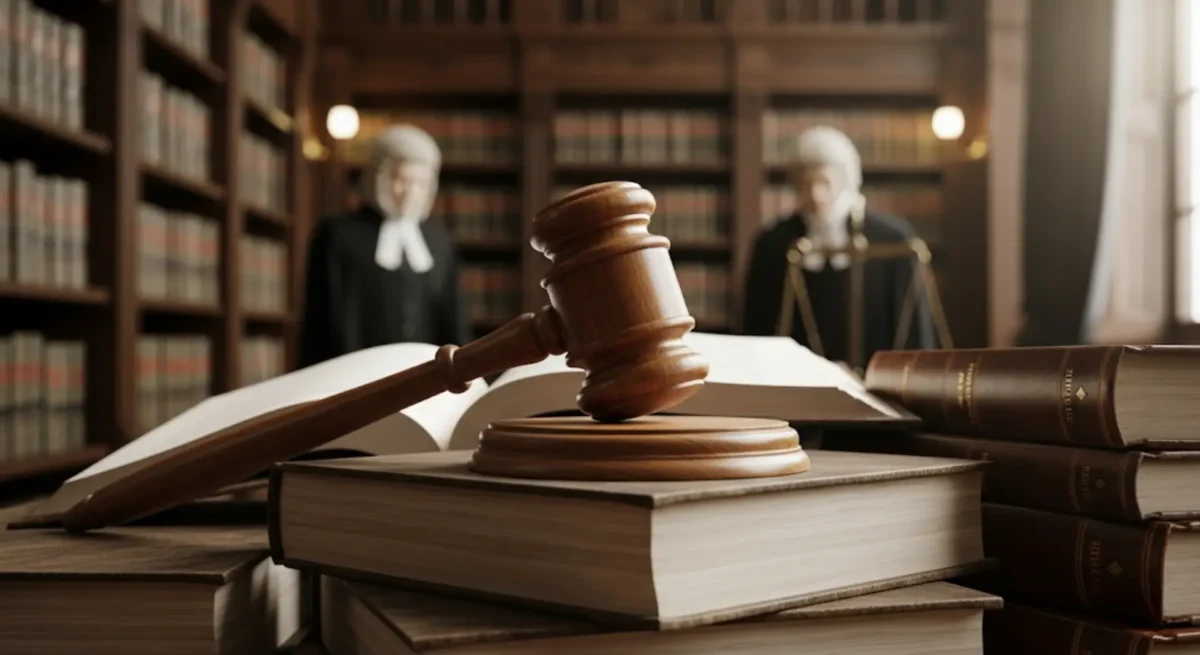What Is Legal Precedent?

Meaning of Precedent
Legal precedent is a cornerstone of the common law system, referring to the judicial principle where past court decisions serve as authoritative guidance for deciding future cases with similar facts. It ensures that justice remains consistent and predictable, preventing arbitrary rulings. In essence, a precedent acts as a bridge between the past and present — allowing legal principles to evolve without losing their foundation.
The term precedent stems from the Latin word praecedere, meaning “to go before.” This reflects its function: earlier decisions “go before” to guide later judgments. Rooted in medieval England, precedent became the foundation for modern judicial reasoning, giving shape to the doctrine known as stare decisis — “to stand by things decided.”
Precedent provides both structure and adaptability. While it compels courts to follow established principles, it also leaves room for reinterpretation when social or moral values evolve. By studying how similar cases were resolved, judges and lawyers ensure that legal reasoning remains coherent yet responsive to change.
“Precedent is not the prison of the law — it’s the framework of its freedom.”
How Precedent Works in Practice
Legal precedent functions as a guiding mechanism that ensures the law is applied consistently across different courts. When judges face new cases, they examine previous rulings to determine how similar situations were resolved. This process helps maintain fairness and predictability — two key pillars of any judicial system built on stare decisis, the doctrine meaning “to stand by things decided.”
There are several types of precedents that courts rely on, each carrying a different level of authority. Understanding these distinctions is essential for interpreting how judges make decisions:
| Type of Precedent | Meaning | Binding Force | Example |
|---|---|---|---|
| Binding Precedent | A decision made by a higher court that lower courts must follow. | Mandatory | Roe v. Wade guiding abortion-related cases in the U.S. |
| Persuasive Precedent | A decision from another jurisdiction or lower court that can influence but not compel. | Advisory | A U.K. court considering a Canadian ruling. |
| Original Precedent | A first ruling on a new issue that sets a fresh legal standard. | Foundational | The first AI liability case establishing digital responsibility. |
| Overruled Precedent | A prior ruling declared invalid by a superior court. | Reversed | Brown v. Board of Education overturning Plessy v. Ferguson. |
These categories form a hierarchy that balances consistency and flexibility. Courts respect past judgments to preserve stability but can reinterpret or overrule them when justice demands change. This adaptive feature prevents the law from becoming rigid while maintaining its core principles.
Example 1 – Donoghue v. Stevenson (1932):
This landmark U.K. case established the “duty of care” principle in negligence law. When a woman became ill after finding a snail in her ginger beer, the court ruled that manufacturers owe a duty to consumers — setting the foundation for modern product liability.
Example 2 – Miranda v. Arizona (1966):
This U.S. Supreme Court decision required police to inform suspects of their rights upon arrest. The ruling became a powerful precedent that reshaped criminal procedure globally.
Example 3 – Brown v. Board of Education (1954):
Perhaps one of the most famous precedents, it overturned racial segregation in public schools and redefined equality under constitutional law.
Together, these examples show how precedent creates an evolving legal ecosystem. It allows courts to remain consistent without being trapped by outdated decisions. The system grows organically — guided by reason, experience, and fairness.
How Lawyers and Judges Use Precedent Strategically
In practice, legal precedent is not merely a historical record — it’s a strategic tool that shapes how legal arguments are built, presented, and ultimately decided. Lawyers study precedents to craft persuasive reasoning grounded in authority. When preparing for trial, attorneys cite previous rulings that closely align with their client’s circumstances. By doing so, they signal to the court that their position has already been validated by a credible judicial source. This technique strengthens arguments and narrows the scope of uncertainty in litigation.
Judges, on the other hand, engage in a more evaluative process. Before issuing a ruling, they examine whether the facts of the current case align sufficiently with prior decisions to justify applying the same reasoning. This is known as analogical reasoning — the art of drawing parallels between old and new cases. For instance, a court assessing a novel data-privacy issue might analyze older precedents on property or contractual rights to determine how principles of ownership and consent should apply in the digital realm.
Precedent also operates as a dialogue among courts. Lower courts follow the interpretive paths established by higher tribunals, but they can also distinguish their own cases by emphasizing factual differences. This selective use of precedent encourages creativity within a disciplined framework. When multiple courts produce consistent interpretations, the result is a robust body of case law that reflects both diversity and coherence.
In appellate litigation, precedent can even predict outcomes. Legal analysts and scholars often map patterns in judicial reasoning to forecast how current courts may rule on emerging issues. For example, a string of cases recognizing digital privacy as a fundamental right indicates a growing judicial trend that future courts are likely to continue. Such predictive analysis helps policymakers, companies, and legal professionals anticipate regulatory shifts before they happen.
Ultimately, understanding how precedent is used strategically transforms it from a passive rule into an active instrument of justice. It empowers lawyers to argue with precision, judges to decide with consistency, and citizens to understand the reasoning behind the laws that govern them. Far from being a relic of the past, precedent remains the living logic of the legal system — a continuous conversation between experience, reason, and fairness.
The Modern Role and Criticism of Legal Precedent
In today’s complex legal environment, precedent continues to serve as both the foundation and the engine of judicial reasoning. It preserves legal continuity by ensuring that similar cases yield similar outcomes, yet it also provides a framework for evolution as society changes. Modern courts use precedent not merely as a rulebook but as a living instrument — one that adapts to new challenges such as digital privacy, artificial intelligence, and global human rights law.
Still, the doctrine is not without criticism. Some scholars argue that a rigid adherence to precedent may inhibit progress and keep outdated interpretations alive. Others counter that predictability is essential for maintaining public trust in the judicial system. This debate highlights the delicate balance between stability and flexibility, two forces that shape how justice operates in practice.
“A precedent should guide, not govern.”
— Judicial aphorism reflecting modern legal thought
In response to these concerns, many courts now apply what is known as living precedent — a modern interpretive approach that acknowledges the evolution of moral, cultural, and technological values. Under this method, judges may refine, distinguish, or even overturn earlier rulings when necessary to align the law with contemporary realities.
Advantages of Living Precedent:
- Encourages adaptability without chaos.
- Keeps the law relevant to societal change.
- Balances historical consistency with progressive reasoning.
- Strengthens judicial accountability through transparent reinterpretation.
Ultimately, precedent is not a static archive of the past but an ongoing dialogue between law and society. It embodies collective judicial wisdom — lessons written over centuries — and ensures that justice remains both grounded and forward-looking. In this way, legal precedent is the memory of civilization’s pursuit of fairness, guiding courts toward reasoned and equitable outcomes.
FAQ — Precedent
What is a precedent in simple terms?
A legal precedent is a previous court decision that serves as a guide for future cases with similar facts or legal issues. It helps judges apply the law consistently and ensures fairness across the judicial system.
Why is precedent important in law?
Precedent promotes stability and predictability by ensuring similar cases lead to similar outcomes. It allows people and lawyers to understand how courts are likely to rule based on established principles.
Can a precedent be overturned?
Yes. A higher court can overturn an existing precedent when it is outdated, unjust, or inconsistent with modern interpretations of the law. This process keeps the legal system responsive to societal changes.
What is the difference between binding and persuasive precedent?
Binding precedent must be followed by lower courts, while persuasive precedent only influences decisions without being mandatory. The distinction depends on the hierarchy of the courts involved.
How does precedent evolve over time?
Precedent evolves through judicial interpretation. As new cases arise, courts refine old rulings, expand definitions, or overrule prior decisions, allowing the law to stay relevant to changing social and technological contexts.
Author Note
This article is provided for general informational and educational purposes only. It does not constitute legal advice or create an attorney–client relationship. Readers seeking legal guidance about precedent or related judicial matters should consult a qualified legal professional licensed in their jurisdiction. The examples and interpretations discussed herein are intended solely to illustrate how legal precedent functions within common law systems and may differ across countries or court hierarchies.






